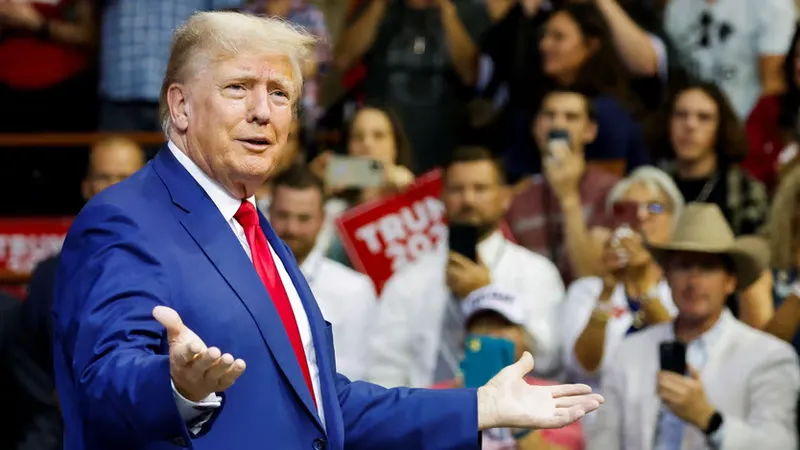Could the 14th Amendment bar Donald Trump from becoming president again?

Donald Trump’s comeback bid is marred by a cloud of legal uncertainties. The former president faces the daunting prospect of four criminal trials, all felony charges, conveniently timed to overlap with the Republican primary season and the high-stakes general election campaign. But there’s another legal pitfall that might throw a monkey wrench into his plans to return to the White House. Source: The Economist.
Enter the U.S. Constitution, that revered document Mr. Trump solemnly vowed to uphold back on January 20th, 2017. Deep within its pages lies a little-known provision, tucked away in Section 3 of the 14th Amendment, that could potentially slam the door on his presidential aspirations. This constitutional curveball bars individuals who’ve taken an oath to defend the Constitution from holding federal office if they’ve ever “engaged in insurrection or rebellion” against the nation or “given aid or comfort to the enemies thereof.”
This obscure piece of constitutional fine print was originally crafted after the Civil War to prevent former Confederate rebels from having a say in running the very country they had tried to tear asunder. Fast forward to today, and it seems this disqualification clause is experiencing a bit of a revival. The notion gained traction in August when two conservative legal scholars, Will Baude of the University of Chicago and Michael Stokes Paulsen of the University of St. Thomas in Minneapolis, emphatically answered the question: Can Section 3 torpedo Trump’s presidential comeback? Their resounding response: “Yes.”
In a hefty 126-page article slated for publication next year in the University of Pennsylvania Law Review, Baude and Paulsen argue that Section 3 could disqualify not only Mr. Trump but “potentially many others” who played a part in what they view as “the attempted overthrow of the 2020 presidential election.” Their claim found support from J. Michael Luttig, a judge appointed by George W. Bush, and Laurence Tribe, a heavyweight law professor at Harvard University.
Yet, as with most things in the realm of law and politics, the plot thickens. Other legal minds from across the ideological spectrum aren’t convinced that Mr. Trump’s involvement in the January 6th events automatically slams the door on his presidential ambitions. Some question whether his actions genuinely constitute insurrection. And, of course, there’s the pesky precedent from 1869 when Chief Justice Salmon Chase ruled that Section 3 could only be enforced by Congress.
Messrs. Baude and Paulsen aren’t buying that interpretation. They contend that Section 3 is what they term “self-enforcing.” To them, not having engaged in insurrection or propping up America’s enemies isn’t a suggestion but a prerequisite for public office, akin to the presidential age requirement of 35. Therefore, they argue that secretaries of state in all 50 states possess the authority to scrub Mr. Trump’s name from the upcoming election ballot.
Lawsuits based on this unconventional theory are already cropping up in various states, with voters and watchdog organizations challenging Trump’s eligibility. Should the courts rule against him, and secretaries of state start erasing his name from the ballots, brace for swift appeals and a probable showdown at the Supreme Court. After all, the justices may want to provide some clarity before the primary season kicks off in earnest. Still, the surge in attention to the disqualification clause remains largely academic. It would be nothing short of remarkable for a majority of the Court to subject a presidential election to an untested legal theory.









